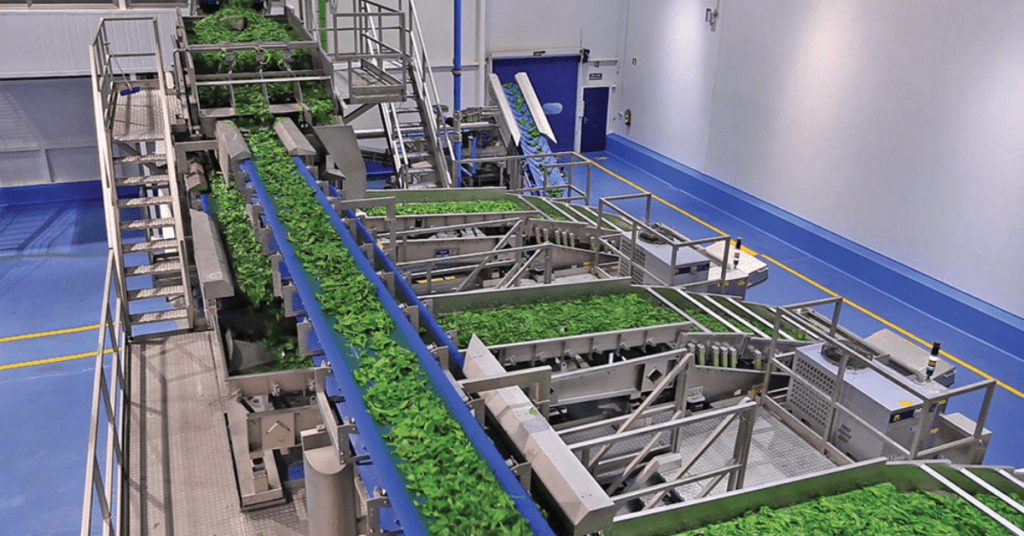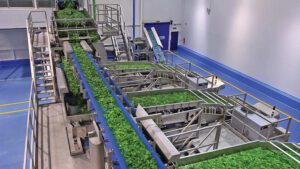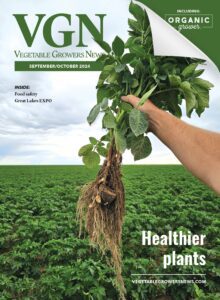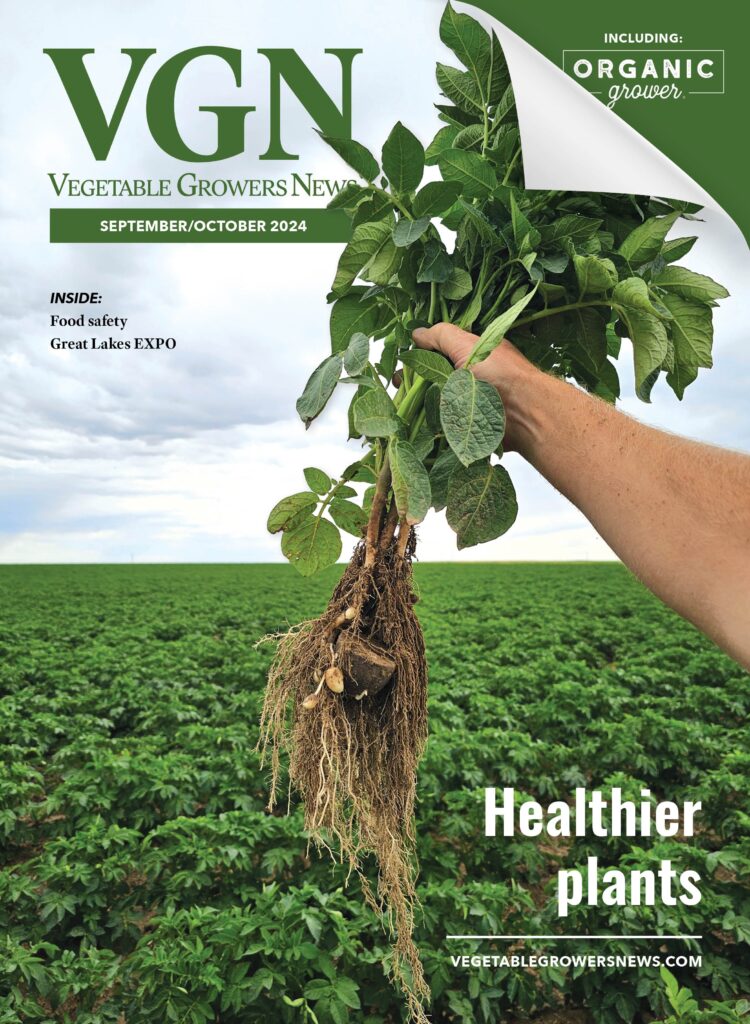
Sep 19, 2024Processing lines are weeding out toxic plants mixed with vegetable crops
Toxic weeds can be difficult to combat on processing lines. When poisonous Datura stramonium (commonly known as thorn apple, stinkweed, angel’s trumpet and jimsonweed) or nightshade (Solanum dulcamara) plants get mixed with green vegetables, the color similarities make detection difficult.
This is especially true of green beans and baby leaf spinach. After beans are blanched for freezing or the spinach is cut, datura becomes even harder to detect. Though rare, instances of poisonous weeds infiltrating food products have occurred.


In December 2022, Australia saw a widespread recall of baby spinach from a Victoria farm after more than 130 people experienced symptoms including hallucinations and delirium, according to The Guardian. A chief scientist at Sydney’s Royal Botanic Gardens suspected toxic plants, including nightshade, were to blame.
“This is likely to be a nightshade,” Brett Summerell told The Guardian. “When young, they are just a few dark green leaves, which is probably not that much different to spinach.” In Slovakia in 2011, deep frozen spinach puree believed to contain jimsonweed was linked to a foodborne outbreak, with estimates of those sickened ranging from a dozen to 100.
Increasing consumer demand for organically grown crops and limitations on pesticide use could result in weeds becoming more prevalent. Global sales of organic foods are expected to increase in value by 2030 at a compound annual growth rate of 10% to 13%.
Retailers expect food processors to take necessary steps to eliminate contamination risks. The good news is that state-of-the-art sorting machines provide effective solutions.
Tricky and toxic
Nightshade fruit has the appearance of a small green ball that, over time, turns black, ultimately resembling a blueberry. Because there is almost no discernible color difference between green nightshade and green produce, it is difficult for color sorters to detect. And when nightshade gets sliced on a processing line along with green beans or baby leaf spinach, it is also difficult to differentiate by shape. Datura fruit is also small and ball-shaped but stays green and has small spikes. As well as blending when mixed with green vegetables, this weed is also difficult to identify by shape after losing its spikes when blanched with green beans.


These similarities can make it necessary to sort objects according to their biological characteristics. TOMRA Food offers effective sorting solutions for vegetable products including individual quick freezing (IQF), fresh pack, fresh-cut and canned.
The TOMRA 5B and the TOMRA 5C are best suited to detecting and rejecting toxic weeds. Some processors use both these machines on the same line: the TOMRA 5B before the product is sliced or blanched, and then the TOMRA 5C, with Biometric Signature Identification (BSI and BSI+) technology, to make final checks between the IQF tunnel and the packing station.
Increasing fresh produce production
The TOMRA 5B is a high-end belt sorting machine that can detect and reject datura and nightshade weeds mixed with fresh product. Combining 360-degree camera technology with one or more lasers and advanced shape algorithms, the machine sorts by color, shape and structure and detects up to 99% of foreign material.
The TOMRA 5B’s touchscreen user interface shows sorting information and real-time process data. The Health Check feature automatically informs the operator before sorting if any of the machine’s surfaces need cleaning.


As well as green beans and baby leaf spinach, the TOMRA 5B is also used for products including peas, carrots, spinach, corn, bell peppers, fresh-cut baby leaf lettuce, mixed lettuce, potatoes, french fries, chips and specialty potato products.
McCall Farms, one of the U.S.’s leading providers of canned vegetables and fruit located in Effingham, South Carolina, is a TOMRA 5B user. The machine helped the operation increase its annual green bean production from 18 million to 204 million cans.
“The performance superiority of TOMRA’s sorters is staggering,” Amanda Salisbury, McCall Farms maintenance superintendent, said. “It’s a delight to watch them perform. We got results above expectations — a 99% removal rate for all defects. Our product quality has risen substantially.”
Finding frozen solutions
The TOMRA 5C can detect and reject nightshade and datura in IQF vegetables even after the weeds are reduced in size by slicing and even after datura has lost its spikes.
Sorting accuracy, including low false-reject rates, is achieved by combining sensors and high-resolution lasers with TOMRAs.
With BSI, every object passing down the processing line is assessed for color and biological characteristics. By looking inside materials with next-generation spectral imaging, then comparing what’s “seen” to information stored in a database, BSI contrasts good and bad materials and can detect smaller defects than conventional spectral technology.
With AI machine learning, the TOMRA 5C continually improves the accuracy of its defect detection. AI also empowers defect classification software so machine operators can set new sorting programs.
Big data analysis is made possible by connecting the TOMRA 5C to the customer portal and cloud-based data platform TOMRA Insight. By accessing live data from the sorter, operators can improve line efficiencies. Also, by accessing data retrospectively, it is possible to quantify the standards of raw materials from suppliers.
Virto Group, a producer of quick-freezing vegetables with 15 specialty centers in 10 countries, recently updated its main plant in Spain with 11 BSI+-equipped sorters.
“Our main objective was to take a quantum leap in new technologies for foreign material sorting,” José Antonio Baldero, technical manager for Virto Group, said. Francisco Casas, in charge of sorting at Virto, said the company was impressed with the BSI+ technology’s high-performance, configurable programs and low false rejection rates.
“Our new TOMRA units can do things that were complicated before we had them,” Casas said.
Written by Jacob Hobbel
Jacob Hobbel is the global category director for vegetables and fruit for TOMRA Food.














